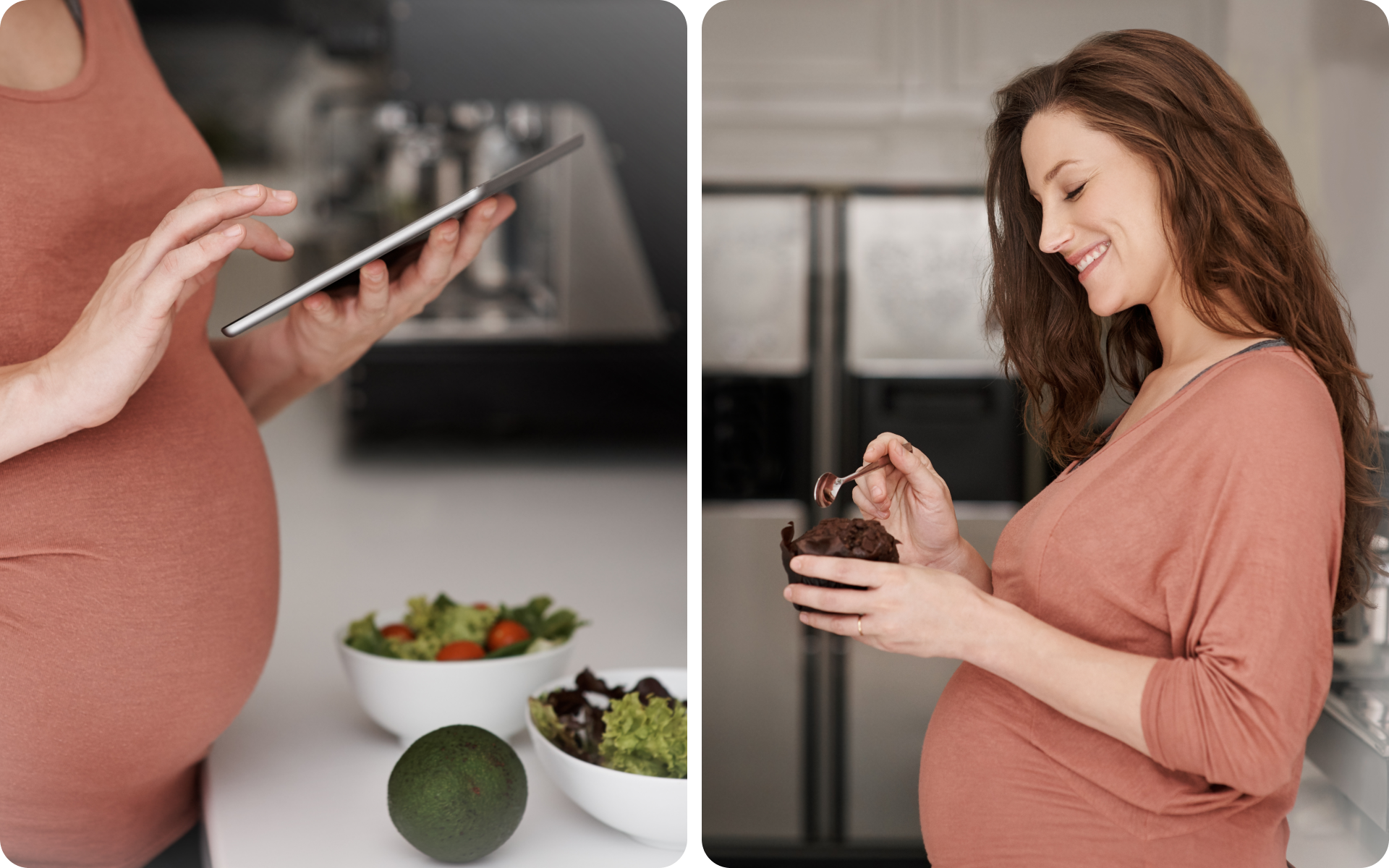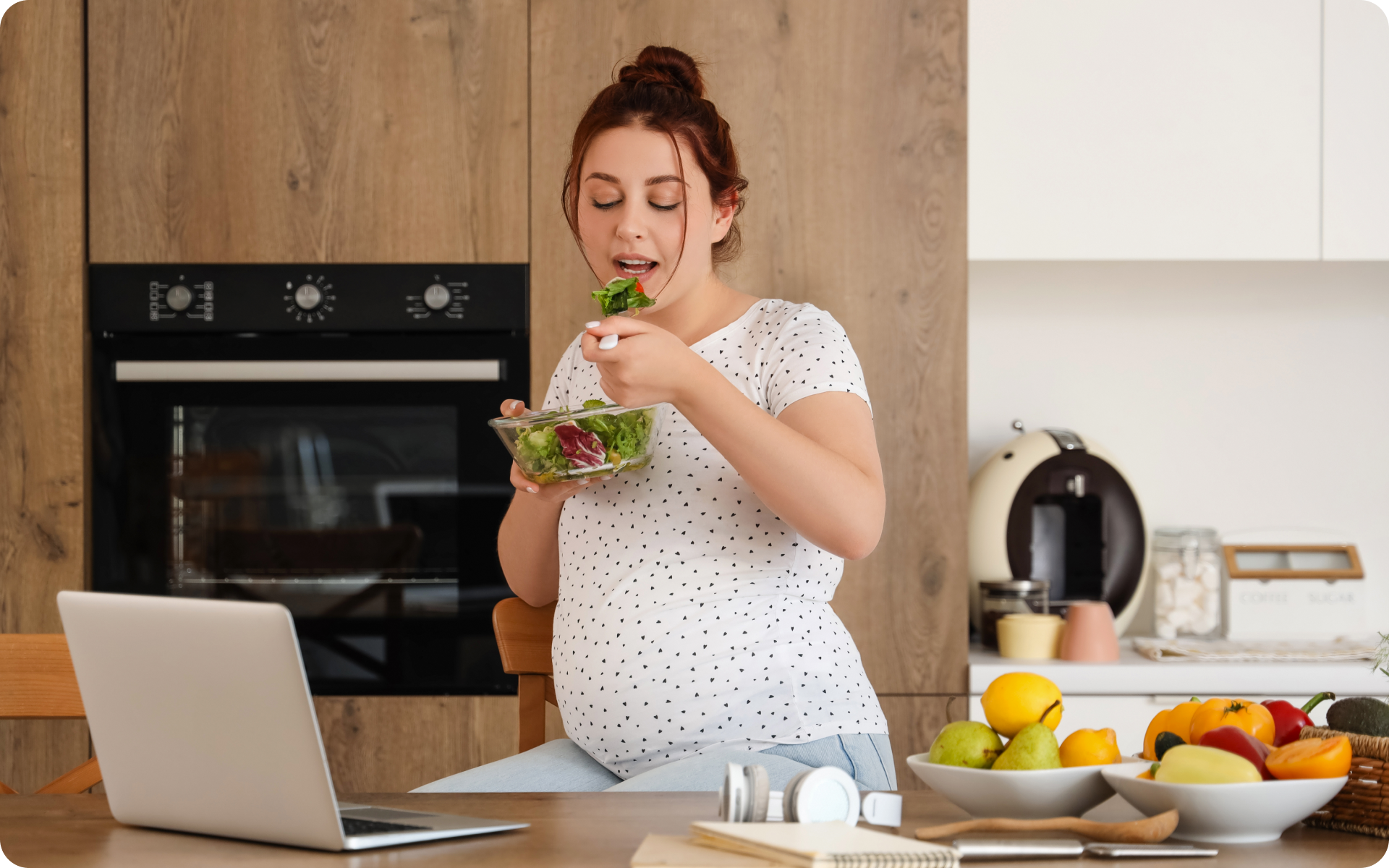We’ve all heard about insane pregnancy cravings, and the narrative around pregnant women avoiding caffeine is one we’ve likely all read or heard about at least once. But what about red meat pregnancy cravings?
Despite being rich in essential nutrients, such as protein, iron, zinc, and vitamin B12, there is some debate about the safety of pregnant women consuming red meat. Interestingly, red meat pregnancy cravings may be a signal from your body that it needs more protein, iron, or other nutrients found in red meat.
The following article aims to separate fact from fiction and examine whether or not red meat is potentially damaging for pregnant women.
Can Pregnant Women Eat Red Meat?
The short answer is yes – to an extent. Red meat contains numerous nutrients that are all beneficial to the health and well-being of a pregnant woman, such as protein, iron, zinc, and Vitamin B12.
Protein, for example, is essential for the growth of fetal tissue. Iron helps the blood flow of oxygen between mother and baby, zinc is necessary for the production and functioning of DNA, and vitamin B12 is essential for developing the baby’s nervous system and preventing any potential neural tube defects. Iron is particularly important as pregnant women are at a high risk of developing anemia (1), which can be alleviated through a diet that is rich in iron.
However, despite all these benefits, red meat can be potentially harmful to pregnant women if not well-prepared. Undercooked or contaminated red meat can result in numerous infections, such as salmonella and listeriosis, which can be harmful to both mother and baby.
Also, not all red meat is equal – there are good and bad types. The following are examples of good red meats:
- Lean cuts of beef such as sirloin or tenderloin are low in fat but high in protein and iron.
- Lean cuts of lamb, such as loin chops, which possess less fat content.
- Pork tenderloin provides a good balance of protein and essential nutrients.
- Grass-fed beef is often leaner and contains high levels of omega-3 fatty acids.
The following red meats are best avoided by pregnant women:
- Raw or undercooked red meat, such as rare or medium-rare steaks, may contain harmful bacteria and parasites.
- Processed meats, including sausages, hot dogs, or deli meats. These often contain preservatives and high levels of fat and sodium.
- Liver and liver products. Although they’re rich in iron and vitamin A, liver products sometimes contain high levels of retinol, which may cause birth defects if consumed in excess.
Read More: Intermittent Fasting for Menopause: Managing Symptoms Through Strategic Eating
Why Limit Red Meat During Pregnancy?
As previously noted, while pregnant women can consume some red meat during their pregnancy, it’s recommended to exercise caution because there are certain risks attached to the overconsumption of red meat. The following are a few of these risks:
- Risk of gestational diabetes – Some studies (2) have linked the overconsumption of red meat to increased gestational diabetes. Red meat can contain significant quantities of cholesterol and saturated fats. Elevated levels of protein, cholesterol, and saturated fat consumption during pregnancy have been associated with elevated risk (3,4).
- Risk of pre-eclampsia – This may be exacerbated by chemicals that are present in red meat, such as saturated fats and heme iron, which negatively affect vascular function and are linked to kidney disease. These chemicals can stimulate the production of harmful substrates, potentially increasing the likelihood of pre-eclampsia in high-risk individuals by impairing endothelial function and elevating oxidative stress (5).
- Increased cholesterol levels – Processed red meats, such as hot dogs and lunch meat, are high in saturated fats, which can increase cholesterol levels and risk of heart disease.
- Cancer risk – While there is no definitive proof, some studies (6) have suggested that the consumption of too much red meat could potentially increase the risk of certain types of cancer.
Which Other Foods Should Pregnant Women Avoid?
The list of foods that are considered bad for pregnant women (7) is quite long. Here’s a list of the ones that are most commonly cited:
- Raw or undercooked meat
- Deli meat, such as hotdogs, lunch meat, and pepperoni
- Fish high in mercury, such as shark, swordfish, bigeye tuna, king mackerel, marlin, orange roughy, and tilefish (8)
- Raw fish, particularly shellfish
- Raw eggs, which can be found in foods such as tiramisu, eggnog, and eggs benedict
- Unpasteurized milk
- Soft cheeses, such as brie, feta, and gorgonzola
- Unwashed fruits and vegetables, such as raw sprouts, radish, and alfalfa
It’s important to remember that fish such as white (albacore) tuna should be limited to 6 oz per week. While not considered a type of food, it is always important to note that pregnant women should reduce their coffee intake throughout their pregnancy and avoid alcohol completely.
What Meat is Good for Pregnancy?
Not all meats are bad or concerning for pregnant women. So, what about meats that are good for pregnancy? The following list identifies various types of meat that are good for an expecting mother:
- Chicken, a lean type of meat, is an excellent source of protein and is also rich in essential amino acids and vitamins, such as B6 and B12.
- Turkey is low in fat and high in protein and is also a good source of zinc.
- Lean cuts of beef, such as sirloin or tenderloin are a great source of iron.
- Pork tenderloin, another type of lean meat, is also a great mix of protein, B vitamins, and zinc.
- Fish, particularly salmon and sardines, are rich in omega-3 fatty acids and low in mercury, which is harmful for pregnant women.
Read More: 7-Week Pregnancy Diet: How to Get the Best Nutrition for You and Your Baby
What Protein Is Best for Pregnancy?
Protein is an essential part of everyone’s diet, particularly pregnant women, to help support their health and wellness and that of their growing baby. The following types of protein offer a great mix of essential nutrients for pregnant women:
- Dairy products, such as Greek yogurt, milk, and cheese. It’s important to differentiate between healthy dairy products and those that include unpasteurized milk, which is potentially harmful to pregnant women.
- Low-mercury fish sources, such as salmon and trout.
- Lean meats such as chicken, turkey, and lean cuts of beef. All types of meat must be well-prepared as raw or undercooked meat could be incredibly harmful to pregnant women.
- Legumes, such as beans, lentils, and chickpeas are high in fiber, and an excellent source for preventing pregnancy-related constipation.
- Eggs are a great source of protein as they can be incorporated into various meals or eaten as a standalone.
- Nuts and seeds, such as almonds, chia seeds, and sunflower seeds
Whether you’re looking to simply pep up your fitness routine, jazz up your diet with mouth-watering low-calorie recipes or want to get your act together and significantly drop that number on your scale – BetterMe: Health Coaching app has got you covered! Improve your body and revamp your life!
FAQs
Can I drink coffee while pregnant?
As with red meat, yes, you can drink coffee while pregnant, but it should be done in moderation. Most studies and experts (9) suggest limiting your daily coffee intake to 200 mg or less per day, which averages to approximately one 12-ounce cup of coffee.
Are bananas good for pregnancy?
Yes, bananas are good for pregnancy and are an excellent dietary choice while pregnant. The benefits of bananas for pregnant women are numerous, including helping provide essential nutrients, such as potassium and vitamin C, helping reduce morning sickness, and reducing anemia.
Is yogurt good for pregnancy?
Like bananas, yogurt is great for pregnancy as it contains numerous essential nutrients, such as protein and calcium. Yogurt is also good for reducing morning sickness and preventing hypertension. However, it’s important to note that when choosing a yogurt, you should pick one that’s pasteurized and very low in sugar.
The Bottom Line
Sifting through all the literature, superstitions, and conflicting beliefs about pregnancy can be both challenging and incredibly daunting for any expectant mother. However, understanding the benefits or potential health risks of any dietary choice is essential for the well-being of both mother-to-be and baby.
Regarding red meat, the bottom line is that it is a valuable source of essential nutrients when consumed safely and in moderation. Focusing on “good” red meats, such as lean cuts, and ensuring they’re thoroughly cooked will help expecting mothers curb their red meat pregnancy cravings while minimizing the potential risks.
Finally, it’s important to remember that every pregnancy is unique and so if ever in doubt, a pregnant woman should always consult her healthcare provider. They can tailor any dietary recommendations to the patient’s individual needs and circumstances.
Whether dealing with red meat pregnancy cravings or seeking the best ways to incorporate it into your diet, making informed choices will help ensure a healthy and enjoyable pregnancy journey for mother and baby.
DISCLAIMER:
This article is intended for general informational purposes only and does not serve to address individual circumstances. It is not a substitute for professional advice or help and should not be relied on for making any kind of decision-making. Any action taken as a direct or indirect result of the information in this article is entirely at your own risk and is your sole responsibility.
BetterMe, its content staff, and its medical advisors accept no responsibility for inaccuracies, errors, misstatements, inconsistencies, or omissions and specifically disclaim any liability, loss or risk, personal, professional or otherwise, which may be incurred as a consequence, directly or indirectly, of the use and/or application of any content.
You should always seek the advice of your physician or other qualified health provider with any questions you may have regarding a medical condition or your specific situation. Never disregard professional medical advice or delay seeking it because of BetterMe content. If you suspect or think you may have a medical emergency, call your doctor.
SOURCES:
- Anemia in Pregnancy (2022, webmd.com)
- The association of red and processed meat with gestational diabetes mellitus (2024, journals.plos.org)
- Food habits in pregnancy and its association with gestational diabetes mellitus: results from a prospective cohort study in public hospitals of urban India (2020, bmcnutr.biomedcentral.com)
- Higher Animal Protein Intake During the Second Trimester of Pregnancy Is Associated With Risk of GDM (2021, pubmed.ncbi.nlm.nih.gov)
- Trimethylamine N-Oxide increases soluble fms-like tyrosine Kinase-1 in human placenta via NADPH oxidase dependent ROS accumulation (2021, pubmed.ncbi.nlm.nih.gov)
- Does eating processed and red meat cause cancer? (2023, cancerresearchuk.org)
- Pregnancy week by week (n.d., mayoclinic.com)
- Nutrition During Pregnancy (n.d., acog.org)
- Moderate daily caffeine intake during pregnancy may lead to smaller birth size(2021, nih.gov)











